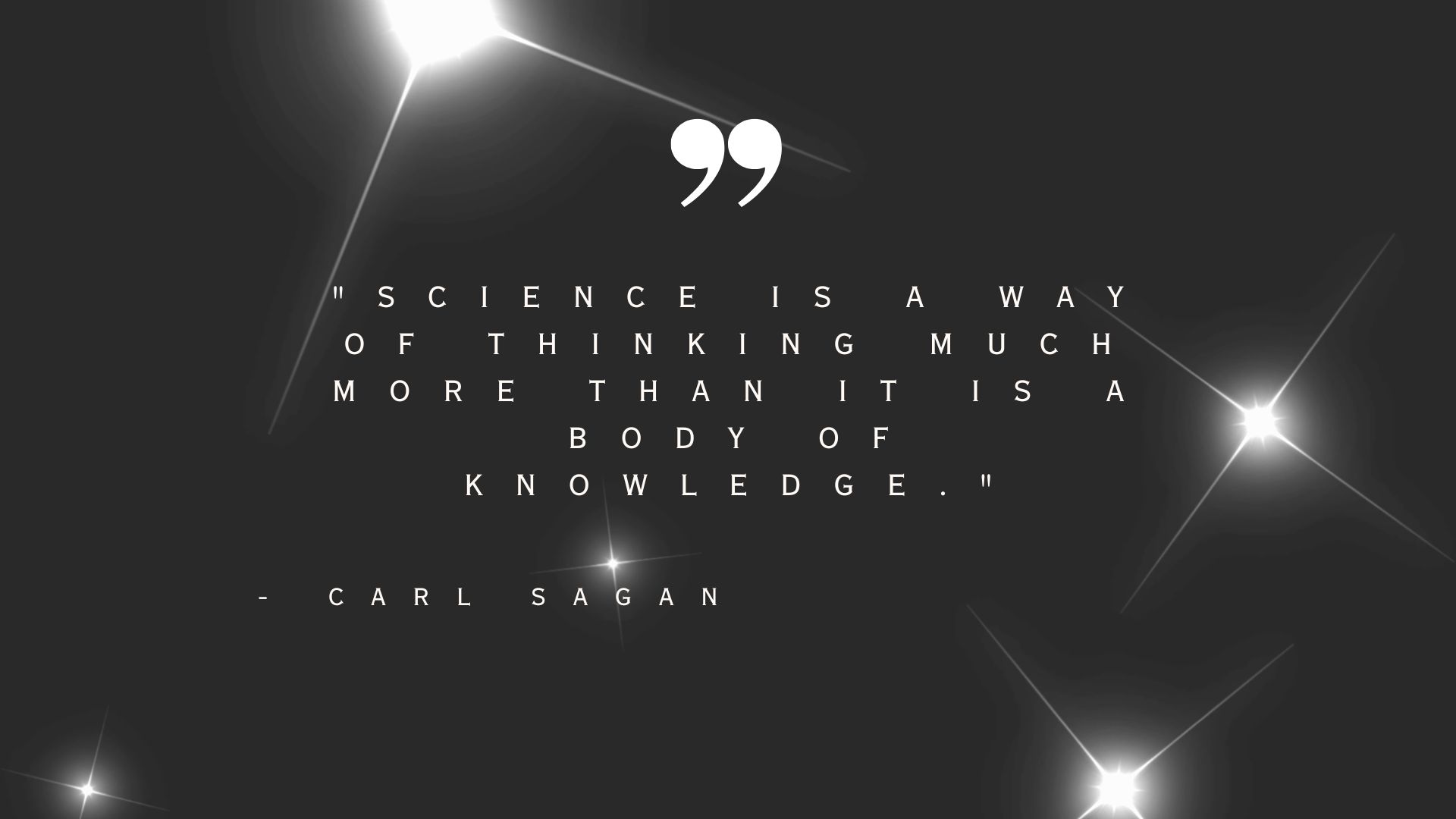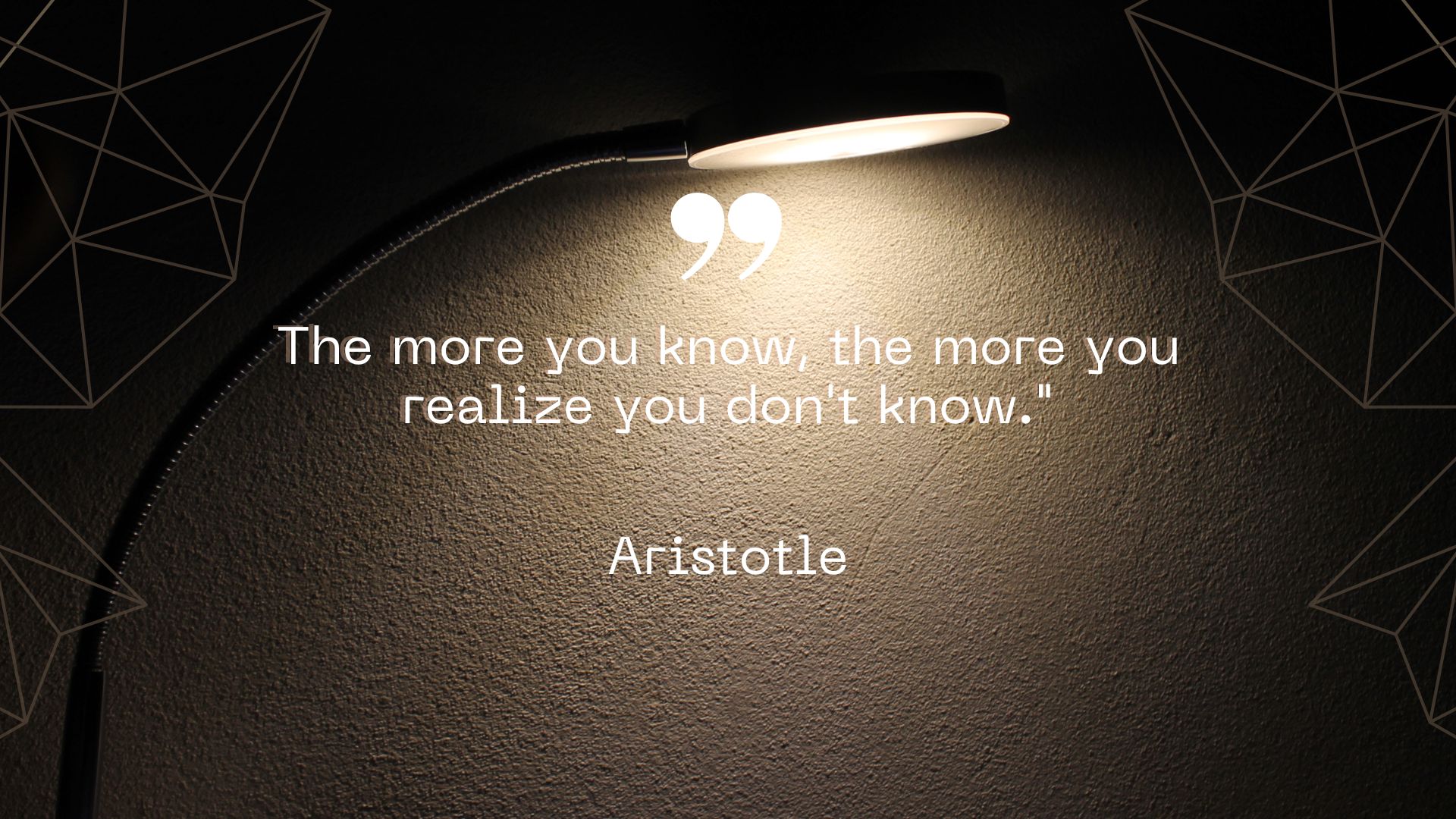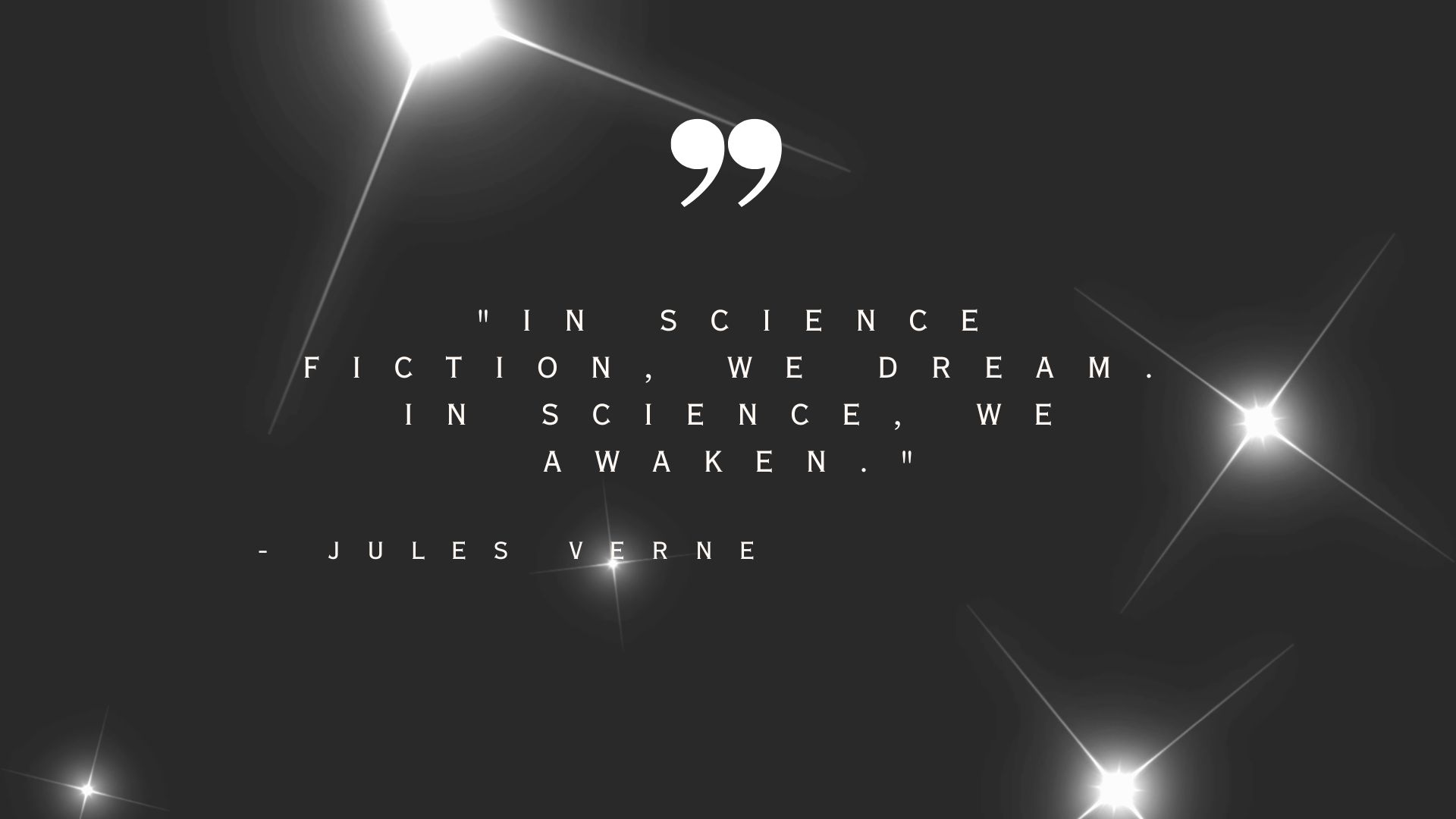“Science is a way of thinking much more than it is a body of knowledge.”
– Carl Sagan
The quote, “Science is a way of thinking much more than it is a body of knowledge,” attributed to the renowned astrophysicist Carl Sagan, encapsulates the fundamental essence of science. Beyond the accumulation of facts and information, this statement highlights the unique approach and mindset that drives scientific inquiry. In this explanation, we will delve into the subheadings that shed light on the significance of Sagan’s words.
- Science as a Process of Inquiry: At its core, science is a process of inquiry that seeks to understand the natural world through systematic observation, experimentation, and critical analysis. Unlike a static body of knowledge, science is an ever-evolving journey of discovery. Scientists approach problems with curiosity, open-mindedness, and a willingness to challenge existing theories. The scientific method serves as a guiding framework, emphasizing the importance of formulating hypotheses, conducting experiments, and drawing conclusions based on empirical evidence.
- The Role of Skepticism and Falsifiability: Central to the scientific way of thinking is skepticism – the healthy doubt and questioning of ideas and claims. Scientists do not accept hypotheses or theories at face value; instead, they subject them to rigorous testing and examination. Furthermore, the concept of falsifiability, introduced by philosopher Karl Popper, underpins scientific theories. A scientific statement must be potentially falsifiable, meaning there must be observable evidence that could prove it wrong. This requirement ensures that scientific knowledge remains reliable and self-correcting.
- Emphasis on Evidence-Based Reasoning: Science relies on evidence-based reasoning to draw conclusions. Data obtained through systematic experimentation and observation serve as the foundation for scientific claims. Moreover, scientific findings are subject to peer review, where experts critically assess the methodology and results of research studies. This process fosters transparency and objectivity, reinforcing the credibility of scientific knowledge.
- Creativity and Imagination in Science: Contrary to the notion that science is a rigid discipline, it embraces creativity and imagination. Scientists often formulate hypotheses based on their imagination and then devise experiments to test them. Innovation and thinking outside the box have been instrumental in many scientific breakthroughs throughout history. Carl Sagan’s work, in particular, exemplified the art of combining scientific rigor with poetic imagination, popularizing science for the masses through his writing and television appearances.
Conclusion: Carl Sagan’s quote eloquently captures the essence of science as a way of thinking rather than a static repository of knowledge. The scientific process involves curiosity, skepticism, evidence-based reasoning, and creative problem-solving. By understanding and embracing this distinctive approach, we cultivate a deeper appreciation for the wonders of the natural world while continuing to expand our collective understanding through the pursuit of scientific knowledge.




